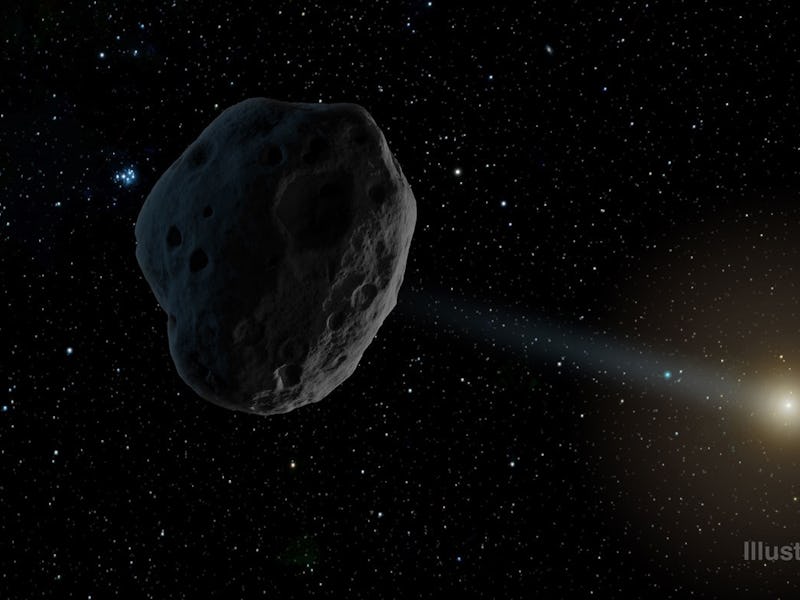Grab Your Binoculars, This Comet Is Extremely Close to Earth

If you are the sort of person who reflexively ducks a little when you drive into a tunnel, consider this your early warning that a very rare comet is currently flying around very close to Earth for the first time in recorded history.
According to a press release from the Jet Propulsion Laboratory, NASA actually has its eye on two newly discovered comets at the moment. But the one we care about at this exact moment is called Comet C/2016 U1 NEOWISE, and the reason we care is because of how fantastically near to us its orbit through our solar system is currently taking it.
Comet C/2016 U1 NEOWISE, to which I feel close enough (sorry) to call simply Comet C for the remainder of this article, has already made its closest pass to the Earth last month — just 66 million miles away. But it will make its closest pass to the sun — inside the orbit of Mercury — on January 14. Until then, you might actually be able to spot it with your standard-issue binoculars, or telescope if you have one. As Paul Chodas, manager of NASA’s Center for Near-Earth Object (NEO) Studies at the Jet Propulsion Laboratory in Pasadena, California, noted in the press release, there are no guarantees here because each comet’s individual brightness is pretty much impossible to predict. But it should appear in the southeastern sky each morning in the moments just before dawn, moving a little farther south each day. After the 14th, it’ll begin to head back out to the far reaches of the solar system, and will continue to do so for several thousand years.
Since 2013, NEOWISE (NEO = Near Earth Object; WISE = Wide-Field Infrared Survey Explorer, of whose mission NEOWISE is the “asteroid-and-comet-hunting portion,” as JPL put it) has focused on tracking objects that could potentially — and hazardously — impact Earth. Neither Comet C nor the recently discovered 2016 WF9, an object which NASA says falls on the “blurry line between asteroid and comet,” pose threats.